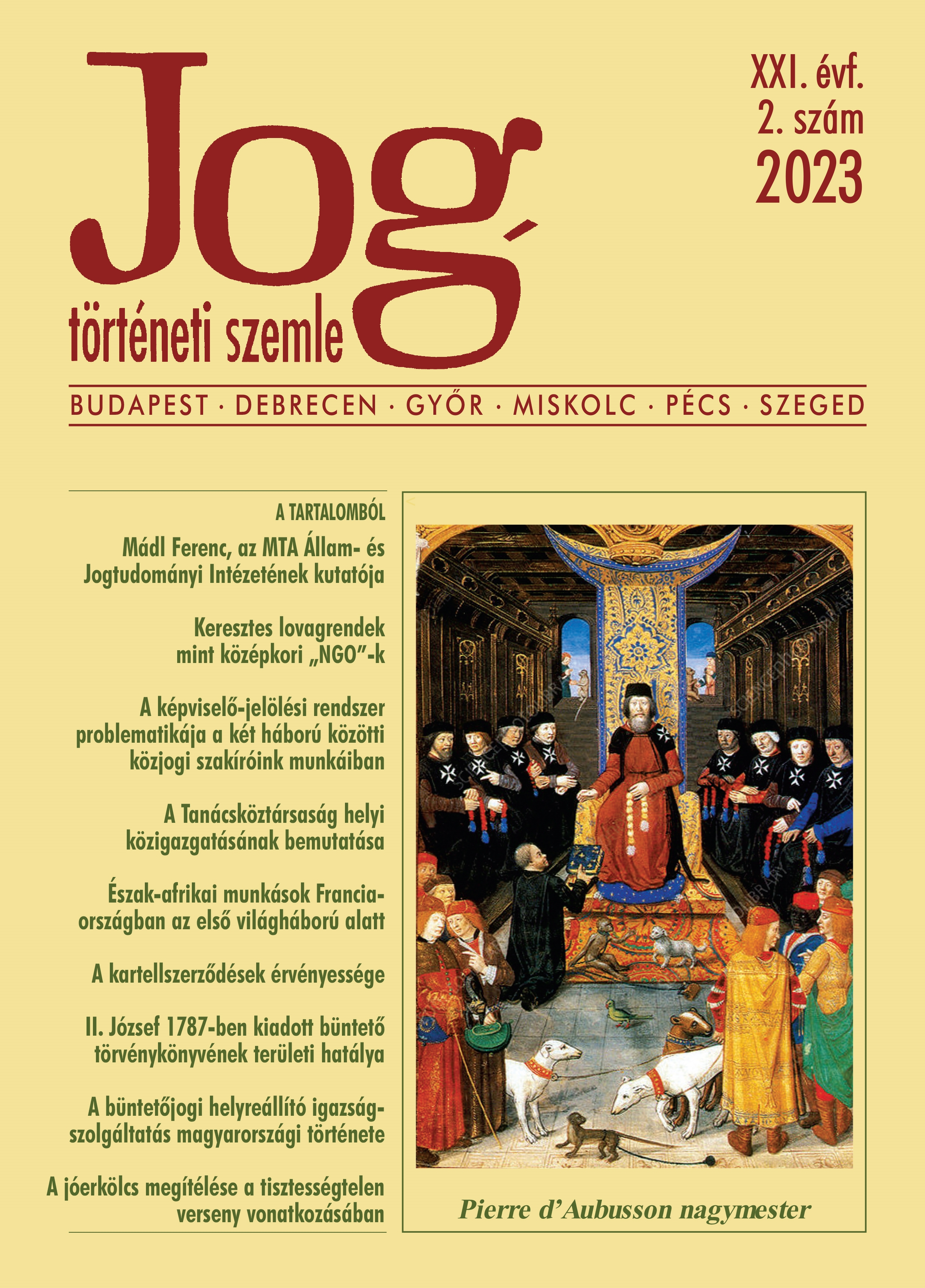Einige Anmerkungen zur räumlichen Geltung des josephinischen Strafgesetzes von 1787
DOI:
https://doi.org/10.55051/JTSZ2023-2p61Abstract
Das Strafgesetz von Joseph II., die sogenannte Josephina scheint bloß ein „Intermezzo“ in der ungarischen Strafrechtsgeschichte zu sein. Da die Josephina in ungarischen und siebenbürgischen Gebieten knapp drei Jahre lang (1787–1790) in Kraft war, vielleicht durch diesen „episodischen“ Charakter kann die Untersuchung des Strafgesetzes interessant werden. Mit Anwendung der klassischen Methode der Rechtsinterpretation fokussiert die Studie auf die räumliche Geltung des Kodexes und beschränkt sich auf eine Analyse unter nur zwei Aspekten. Aufgrund der grammatikalischen und teleologischen Auslegung des Kundmachungspatentes vor dem Strafgesetz und auch der Fachliteratur scheint es deutlich zu sein, dass die grundsätzliche Absicht des Monarchen war, für alle seiner Staaten ein allgemeines Gesetz als eine bestimmte Richtung zu geben. Er beabsichtigte eigentlich, denn im Verlauf der Beurteilung der begangenen Tat und Strafzumessung genossenen ziemlich weiten richterlichen Spielraum in Schranken zu halten und seine Gesamtstaatsidee auch in der Strafrechtspflege durchzusetzen. Es lohnt sich dennoch, den Einführungsprozess des josephinischen Strafgesetzes sorgfältiger zu analysieren und einzelnen Momente der Inkraftsetzung oder zumindest die Bestrebungen danach immer hinsichtlich der einzelnen Staaten und Länder der Habsburgermonarchie zu rekonstruieren. Der aus dem Kundmachungspatent erschlossene gesetzgeberische Wille ging nicht restlos in Erfüllung, weil die Josephina nicht in allen Staaten und Ländern in Kraft gesetzt wurde, wie zum Beispiel in der österreichischen Lombardei auch nicht. Das andere Problem wird durch diese Erforschung in Verbindung mit der räumlichen Geltung entdeckt, dass es nämlich einen latenten Gegensatz in der deutschsprachigen Fachliteratur gibt. Manche prominenten hauptsächlich österreichischen und deutschen Rechtsgelehrten vertraten in der zweiten Hälfte des 19. Jahrhunderts bzw. sogar im nächsten Säkulum den Standpunkt, dass der Kodex im Königreich Ungarn und in seinen Nebenländern sowie im Großfürstentum Siebenbürgen nie in Kraft war. Diese Verfasser haben doch keine Informationen über das ungarische Strafrecht in der Periode von 1787 bis 1790 gegeben. Jedoch erwies sich ihre Meinung gar nicht als alleinig, denn zahlreiche fremdsprachige Studien wiesen auf die Inkraftsetzung der Josephina sowohl in ungarischen als auch siebenbürgischen Gebieten hin.






